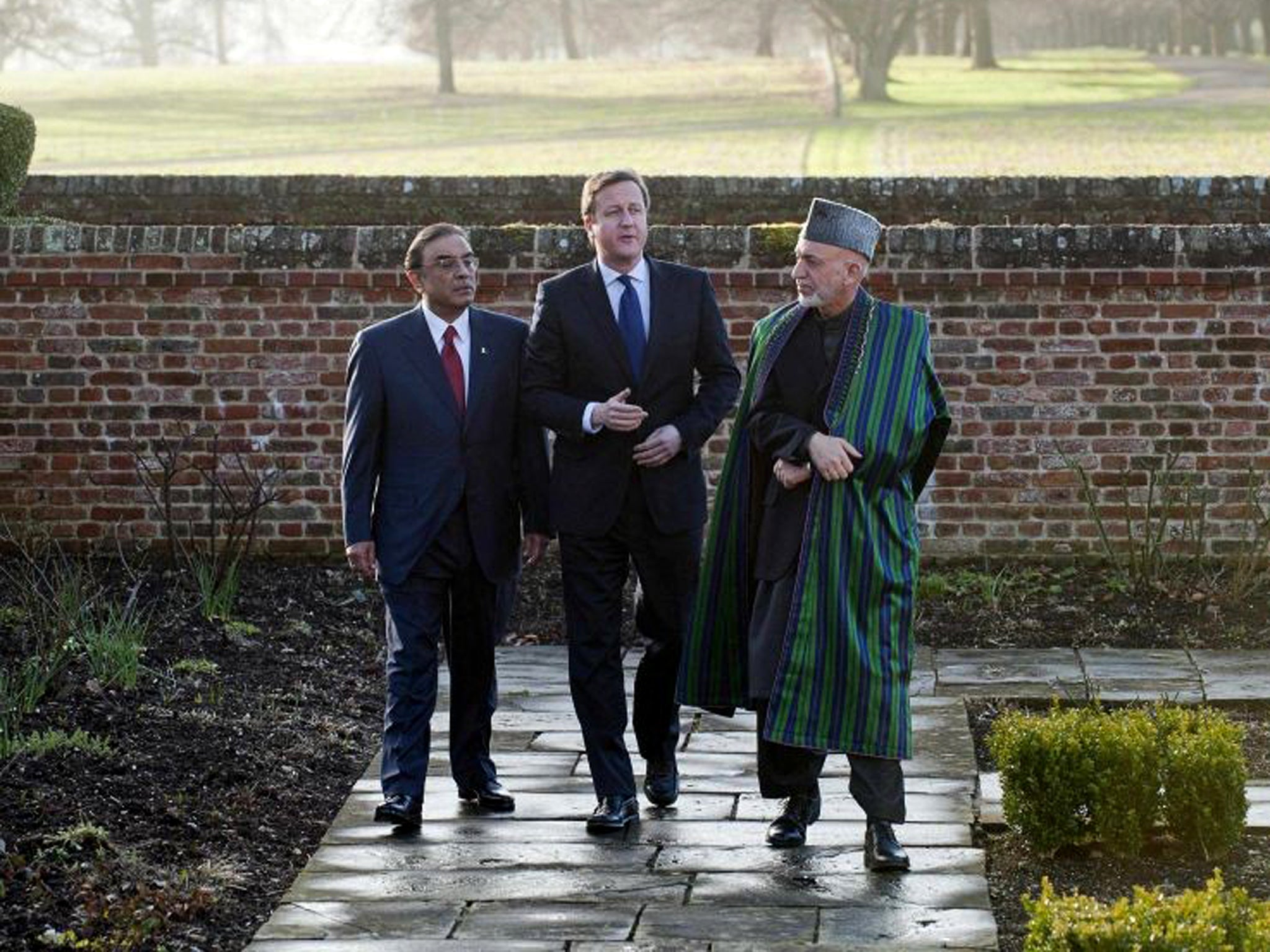Afghan 'peace deal' tabled – but still no sign of the Taliban
PM urges Taliban to lay down weapons and enter talks after positive summit at Chequers

Your support helps us to tell the story
From reproductive rights to climate change to Big Tech, The Independent is on the ground when the story is developing. Whether it's investigating the financials of Elon Musk's pro-Trump PAC or producing our latest documentary, 'The A Word', which shines a light on the American women fighting for reproductive rights, we know how important it is to parse out the facts from the messaging.
At such a critical moment in US history, we need reporters on the ground. Your donation allows us to keep sending journalists to speak to both sides of the story.
The Independent is trusted by Americans across the entire political spectrum. And unlike many other quality news outlets, we choose not to lock Americans out of our reporting and analysis with paywalls. We believe quality journalism should be available to everyone, paid for by those who can afford it.
Your support makes all the difference.A lasting peace deal could be agreed in Afghanistan within six months, David Cameron insisted yesterday as he urged the Taliban to lay down its weapons and enter talks over the country’s future.
There will be scepticism over the Taliban’s willingness to engage with the political process – as well as fears that it could bide its time until the end of 2014 when all Nato troops are due to be withdrawn, with Afghan troops then assuming total responsibility for security.
The Taliban was not represented at the Chequers summit, which featured Afghan President Hamid Karzai and his Pakistani President, Asif Ali Zardari.
The Afghan and Pakistani presidents said they would try to bury their neighbouring nations’ differences in the search for a stable political settlement. As recently as September 2011, the US accused the Pakistani intelligence services of backing insurgents staging bomb attacks in Kabul.
As a first step towards persuading the Taliban to abandon violence and enter the political process, the three leaders backed plans for it to open a bureau in the Qatari capital, Doha.
The office would act as an unofficial “embassy” for the Taliban, enabling it to initiate formal contacts with the Afghanistan High Peace Council, which was set up to negotiate with the fundamentalist organisation.
The Taliban, which was in power in Afghanistan for five years until it was toppled by an American-led invasion in 2001, has to decide by the autumn whether or not to contest next year’s presidential elections. British sources insist there are grounds for optimism that the Taliban, which has mounted a decade-long insurgency against western forces, could be persuaded to negotiate. During talks at Mr Cameron’s Chequers residence, President Karzai pledged “full support” for the Afghan leader’s “roadmap for peace and reconciliation”.
Britain interpreted the apparent improvement in the previously strained relations between Afghanistan and its neighbour as encouraging. Yesterday’s Chequers summit was also attended by military and intelligence chiefs from Britain, Afghanistan and Pakistan.
Mr Cameron said the two leaders had agreed “an unprecedented level of co-operation” and added that their agreement should send a clear message to the Taliban: “Now is the time for everyone to participate in a peaceful, political process in Afghanistan.”
Mr Karzai said they had had a “very frank and open discussion”. He had previously been sceptical about the establishment of a Taliban office in Qatar.
Join our commenting forum
Join thought-provoking conversations, follow other Independent readers and see their replies
Comments